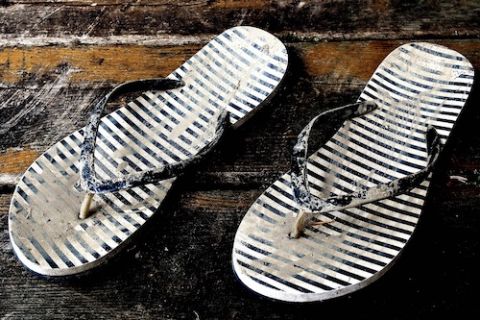MITA c.jpg
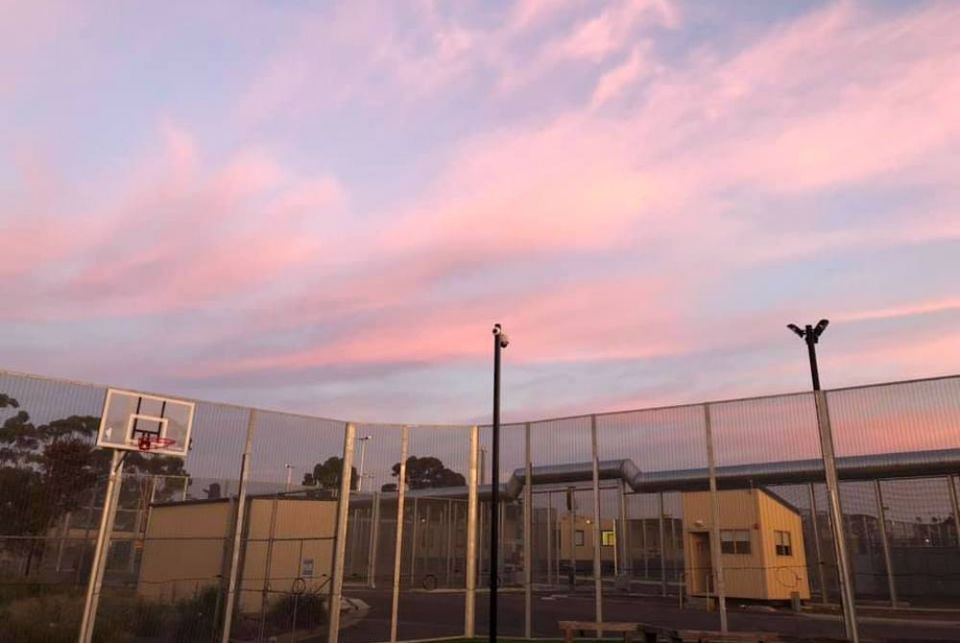
Welcome to our fourth year of The Life, featuring a panel of 20 sisters who will reflect on issues that impact the lives of Catholic women religious around the globe.
We chose a panel from more than 60 applicants from around the world who reflect a diversity of ages, nationalities, religious congregations, ministries and charisms.
Our panelists this year have ties to or have worked in: Australia, Bolivia, Canada, El Salvador, England, France, Germany, Honduras, India, Ireland, Kenya, Mexico, New Zealand, Pakistan, Papua New Guinea, Peru, the Philippines, Portugal, Romania, Rwanda, South Sudan, Spain, Tanzania, Uganda, the United States, Zambia and Zimbabwe. You can meet all of them here.
They include teachers and school administrators from all levels; parish ministers, theologians and spiritual directors; missionaries; sisters who have worked with youth, women, Dalits, Maoris, and people with HIV/AIDS; sisters in community leadership, social work, journalism, writing and speaking; a clinical psychologist, nurse, doctor; a former archdiocesan chancellor and NGO director, a university president, and a congregation founder.
This month's panelists share stories about oppressed women, armed conflict, babies, a noodle cake, flip-flops and pajamas as they responded to this topic:
Describe a key lesson you have learned from your ministry or life as a sister.
______
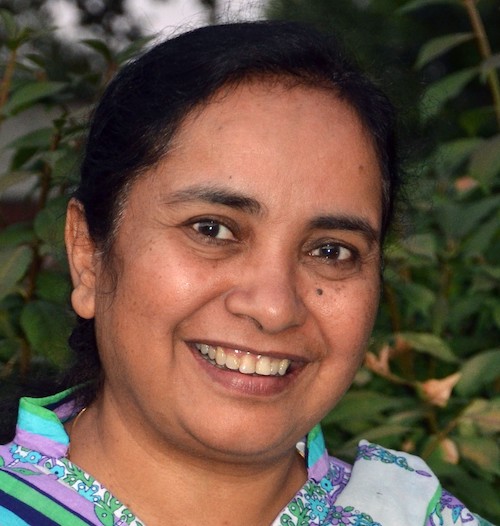 Nasreen Daniel is a member of the U.S. Sisters of Loretto. From Lahore, Pakistan, she obtained paralegal training and a master's degree in English in Pakistan. Further studies in India and the Netherlands included international law and theology, social studies, counseling and religious studies. She taught in seminaries in Pakistan and in academies in the United States and was a field worker and journalist for the Society for the Protection of the Rights of the Child, a Muslim/Christian consortium. She has published in English, Urdu and Dutch. Since 2016, she has been the chairperson for Major Superiors Leadership Conference of Pakistan.
Nasreen Daniel is a member of the U.S. Sisters of Loretto. From Lahore, Pakistan, she obtained paralegal training and a master's degree in English in Pakistan. Further studies in India and the Netherlands included international law and theology, social studies, counseling and religious studies. She taught in seminaries in Pakistan and in academies in the United States and was a field worker and journalist for the Society for the Protection of the Rights of the Child, a Muslim/Christian consortium. She has published in English, Urdu and Dutch. Since 2016, she has been the chairperson for Major Superiors Leadership Conference of Pakistan.
When I started my novitiate with the Franciscan Missionaries of Christ the King in 1979, I thought I would have a lot of time to pray and read. What did I know? It was a call for 24/7: One has to become like Paul, present for every need.
Most of my religious life, I worked for the rights of women, since women are at the "receiving end" in Pakistan: aborted before birth, malnourished in childhood, not educated, exchanged for marriage, burned for not bringing enough dowry, ill-treated for giving birth to a girl child, deprived of most of the necessities of life, and murdered in honor killings.
I worked for youth in the province of Sindh, where few women are seen out on the roads. Asking the girls to come for any program organized by the diocese was a difficult task. We soon learned to ask the boy from the same family to come along for the program! I also worked in the women's jail, providing free legal aid. I belonged to the human rights commission of Pakistan in which the lawyers could not charge for the cases of destitute women. I did that for 18 years, and then it became difficult to continue; my congregation was worried about me because I was getting threats.
I desperately wanted to continue my work but could not. A friend of mine, an American Dominican priest, told me about the Sisters of Loretto. In the late '90s I contacted the head of the congregation and told her my dilemma. She welcomed me, and I transferred to the Sisters of Loretto.
being present c.jpg
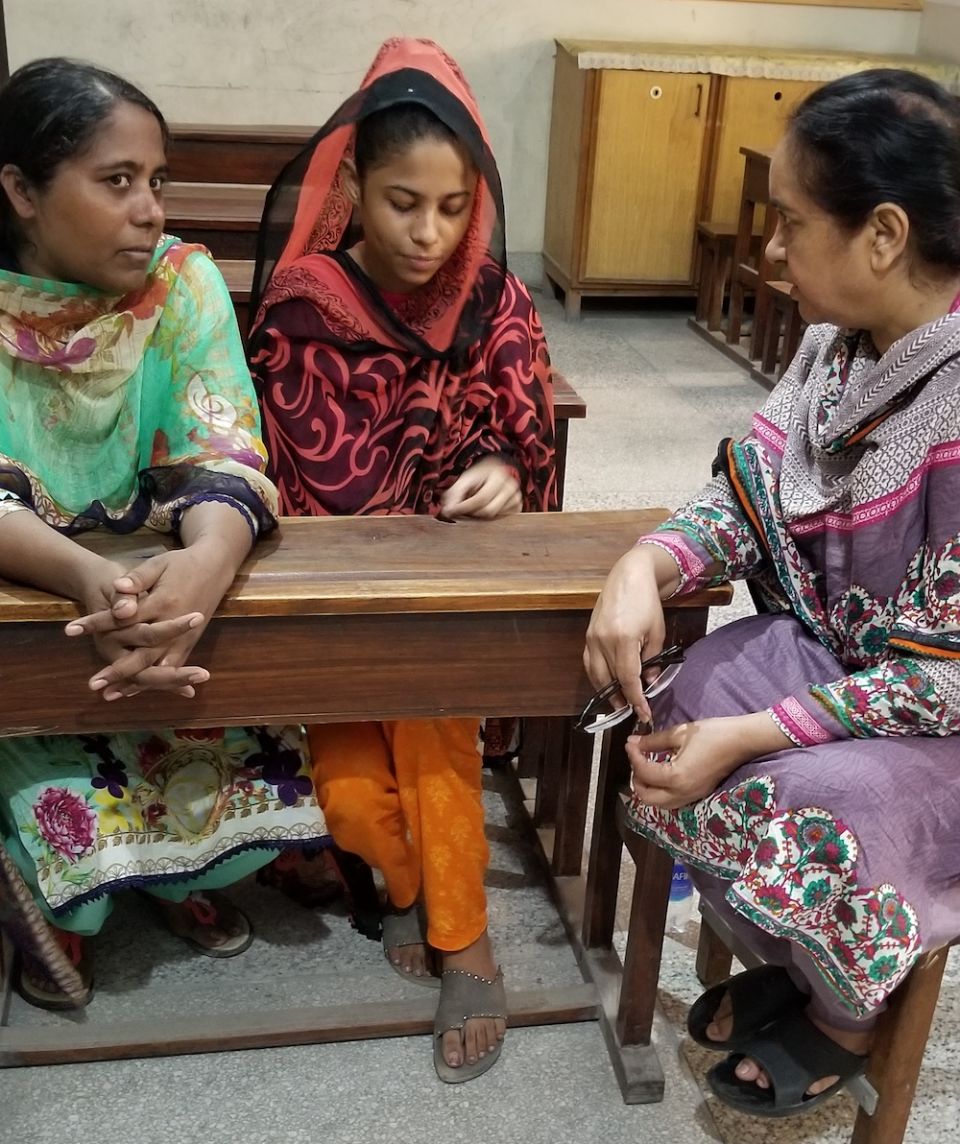
In 2009, we started a mission in Pakistan with two other Pakistani sisters. We live in the suburbs of Lahore and have school for the children of our slums, with skill development centers for the women and girls who clean rich people's houses in the morning and come to the center in the afternoons. I also teach in the major seminary two days a week. With the help of the human rights commission of Pakistan, we provide legal aid. We take the sick of our village to the hospital. We have a nice place in our compound to plant vegetables, which we share with all who come, and we have a water purifier and provide clean drinking water for the people in our area.
My dream about sisters finding ample time for reading shattered, but prayer happens even when I am not in the chapel: when I see forgotten children of God, always struggling to get out of the vicious web of societal vices that curb their efforts to live full human lives. Instead of just giving them a fish, we are teaching them to fish.
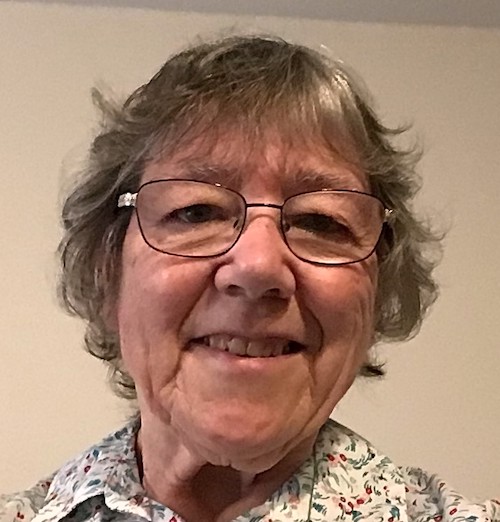 Kathryn Keigher is from England, a member of the Institute of the Blessed Virgin Mary (Loreto). Most of her ministry was spent teaching English and religious education in secondary school and college, but she taught English in Romania over the holidays. She also served at a Loreto mission in Bolivia for four years. She is the justice, peace and integrity of creation coordinator for her region and schools and worked for several months at the congregation's nongovernmental organization office in New York. She still does volunteer work teaching English as a second language.
Kathryn Keigher is from England, a member of the Institute of the Blessed Virgin Mary (Loreto). Most of her ministry was spent teaching English and religious education in secondary school and college, but she taught English in Romania over the holidays. She also served at a Loreto mission in Bolivia for four years. She is the justice, peace and integrity of creation coordinator for her region and schools and worked for several months at the congregation's nongovernmental organization office in New York. She still does volunteer work teaching English as a second language.
Working with teachers in the Beni region of Bolivia, I was invited to an awards ceremony. Bolivia is South America's poorest country, and Riberalta is on the edge of the jungle, so this was no Hollywood bash. But I was very excited when Victoria, the director of religious education, invited me and told me that I was to receive an award.
The ceremony took place in a large arena called the Coliseum, a wide-open space that dipped in the middle. It was beginning to fill up as we arrived. Everyone stood in a circle; there was nowhere to sit down except on the dirty, muddy floor. I was wearing my best and only suit.
It did not take me long to realize that certificates were given quite liberally here. In searing heat, extreme poverty and with no transport of any sort, even turning up every day at school was worthy of an award. I duly accepted my certificate, which confirmed that I had attended meetings at a number of local area schools. I felt quite proud of myself and couldn't wait to show off. After a few days of "showing off," I forgot about the whole affair.
Later, Victoria called me to her office — a mud hut with a concrete floor. I could see that she was concerned about something. Apparently, the director of education was not happy that I had turned up in flip-flops to receive my certificate. (I had worn flip-flops because the intense heat in this part of Bolivia was my greatest challenge.) I was completely mortified and wanted to take the first plane home.
Even now, 20 years later, I feel upset. I was full of admiration for those men and women whose lives were full of hope where there seemed to be no hope. They were always spotless, always happy and always thanking God. School uniforms for staff and students were white and always beautifully clean in a place where the washing machine was the river.
Recently, we have seen intense discrimination and prejudice and failure to treat all people with dignity, even to the point of death. We cannot afford to be complacent.
In Riberalta, I insulted the people with whom I lived and worked without even realizing it. I can do nothing about what happened that day in a country where I have left my heart, but I hope I can learn from it.
I still have the flip-flops.
CNS-1022 sudan c.JPG
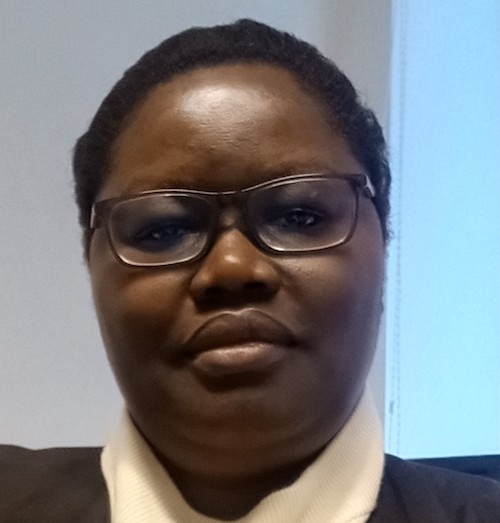 Rosemary Achien'g Oduol, a Kenyan member of the Franciscan Missionary Sisters for Africa, has a nurse/midwife background with a graduate degree in public health. She has diverse experience in ministry, including nursing education and community nursing with HIV/AIDS patients in Kenya, Uganda and Zimbabwe. She has also worked as a CEO of a mission hospital in South Sudan and as a member of her area leadership team. Presently, she is ministering at the congregational headquarters in Ireland as assistant superior general.
Rosemary Achien'g Oduol, a Kenyan member of the Franciscan Missionary Sisters for Africa, has a nurse/midwife background with a graduate degree in public health. She has diverse experience in ministry, including nursing education and community nursing with HIV/AIDS patients in Kenya, Uganda and Zimbabwe. She has also worked as a CEO of a mission hospital in South Sudan and as a member of her area leadership team. Presently, she is ministering at the congregational headquarters in Ireland as assistant superior general.
The adventures of missionary life always intrigue me; every day, they require trust in God, myself, and the people I serve. I also marvel at the uniqueness of each community I ever served as a missionary and the great lessons they have brought to my life journey.
Thinking of my last mission to Wau, South Sudan, I think of a quote from Paulo Coelho: "Take advantage of the chance that tragedy has given you; not everyone is capable of doing so." When I arrived in South Sudan, it looked like tragedy: The visible effects of prolonged years of war, dry, dusty roads, heat of the sun, poverty and human deprivations were paralyzing. I would have gladly taken the next plane back to my country because the situation looked hopeless.
Surprisingly, I sank my roots and embraced the people, who in turn opened their arms and embraced me. I began to understand their situation in a very personal way and find workable solutions with them for some of their concerns. I experienced four episodes of armed conflict with plenty of bloodshed and deaths, regular threats to my life and many sleepless nights due to lack of funds for our activities or fear due to impending war.
But the fulfillment was great. When my congregation called me back to take on a new responsibility, my departure from Wau became another tragedy. It was heartbreaking. I found it extremely difficult to let go of my ministry in South Sudan.
I bowed out of South Sudan physically worn out and emotionally drained but with immense wealth of experience, awareness and humility after working with the people of Wau for 10 years.
Reflecting on that experience, I wonder that I found so much fulfillment amid many challenges. Richard Rohr writes about how encounters with each other in the rawness of life (The Naked Now) are extremely bonding, striking a chord in the very essence of who we are. If you are blessed to experience this, thank God and cherish it because it is rare.
Faith asks me to trust in a God who journeys with me always, but South Sudan helped me understand a faithful God who always reached out in times of need, whether I knew it or not. I enjoyed being a missionary and now realize how privileged I have been to journey with the people of South Sudan in their vulnerable situation. It taught me to hold my own vulnerability.
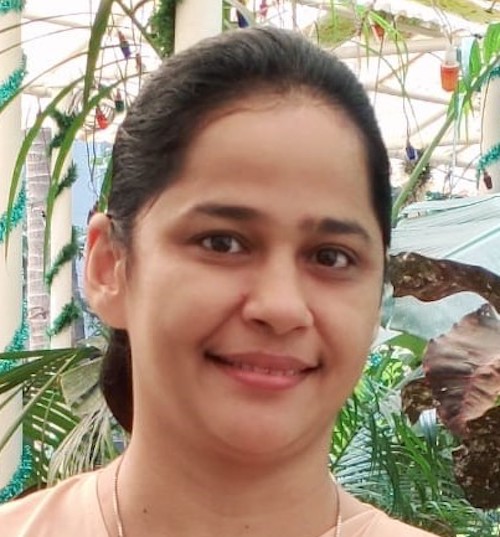 Dr. Beena Madhavath is from India, a member of the Congregation of Ursulines of Mary Immaculate. Her medical degree is in obstetrics and gynecology, and she has served as the medical superintendent, deputy director, consultant gynecologist and teacher at Holy Family Hospital in Mumbai, India. She is the provincial councilor for medical apostolate of her province, the national president of the Sister Doctors Forum of India, and a board member of the Catholic Bishops' Conference of India-Coalition for AIDS and Related Diseases and India's Christian Coalition for Health.
Dr. Beena Madhavath is from India, a member of the Congregation of Ursulines of Mary Immaculate. Her medical degree is in obstetrics and gynecology, and she has served as the medical superintendent, deputy director, consultant gynecologist and teacher at Holy Family Hospital in Mumbai, India. She is the provincial councilor for medical apostolate of her province, the national president of the Sister Doctors Forum of India, and a board member of the Catholic Bishops' Conference of India-Coalition for AIDS and Related Diseases and India's Christian Coalition for Health.
After I completed medical studies, I worked in a 50-bed hospital in Uttar Pradesh, India, where I had to serve as casualty medical officer, attending all emergency calls. Then I would switch to being a gynecologist, conducting high-risk deliveries and even managing cesarean sections before becoming a neonatologist to resuscitate a newborn.
While the sudden autonomy was invigorating, there were difficult moments. Amid the nightmare of a complicated case, an elderly sister-nurse would light a candle in the chapel and recite the rosary.
I have witnessed the power of prayer and miraculous recoveries from medically impossible conditions. The tremendous support and encouragement I have received from sister-nurses are unforgettable. When unexpected things happened, I felt the gentle hand of the Divine Healer working through me and helping me move forward, deepening my faith and increasing my self-confidence.
Most of the patients I treated were living in poverty, illiterate and malnourished, but their expression of gratitude for being healed was unforgettable. As they walked out of the hospital hale and hearty, I was filled with a sense of fulfillment and satisfaction. The immense joy of touching and saving one more life gave me more enthusiasm and vigor to continue the healing mission of Jesus.
Advertisement
Advertisement
For the past 12 years, I have ministered in gynecology at Holy Family Hospital in Mumbai, India. As an obstetrician, I have the privilege of witnessing the two ultimate realities of life here on Earth: birth and death. The joy of accompanying a woman in her journey from pregnancy to childbirth and beyond is special: the unique experience of assisting a woman through the nine long months of waiting, with its excitement and uncertainty, and then the arrival of the newborn, truly a moment of happiness for the doctor, the patient and the entire family. No words can explain this blissful, magical, divine experience that the doctor, mother and her newborn share.
On the other hand, the loss of a young pregnant woman, the death of a mother after delivery, or the intrauterine death of a fetus always leave a feeling of helplessness, sorrow and pain. I have spent hours with relatives, helping them to accept the reality of this loss with serenity and faith.
A doctor-patient relationship is much more than just medical treatment. It encompasses all dimensions: compassion, empathy, trust, respect, spirituality and sharing of responsibility.
I am indebted to my patients for what I have learned and my acquired clinical skill. They have taught me more than textbooks, computers and laboratories. It is my turn to give back and use my expertise in their service.
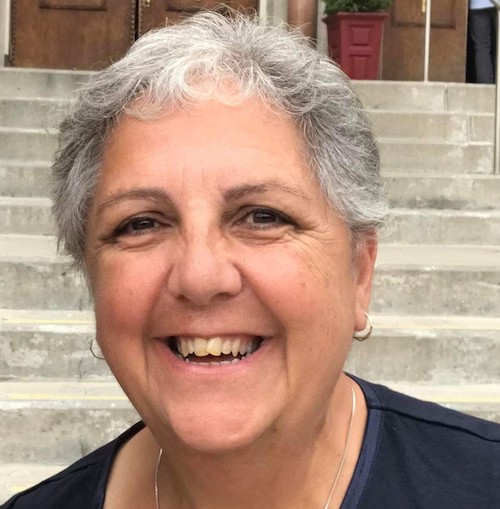 Rita Malavisi is a Sister of St. Joseph of the Sacred Heart from Melbourne, Australia, of Italian and Arabic ancestry. In Melbourne, she studied primary teaching, religious education and spiritual direction and worked in both elementary and high school education as well as parish ministry. While serving as information technology coordinator for her community, she did adult faith formation as well as pastoral care for asylum-seekers. She is currently working on a degree in pastoral studies at the Catholic Theological Union in Chicago (graduating in May 2021), while serving in her congregation's immersion and discernment of call formation group.
Rita Malavisi is a Sister of St. Joseph of the Sacred Heart from Melbourne, Australia, of Italian and Arabic ancestry. In Melbourne, she studied primary teaching, religious education and spiritual direction and worked in both elementary and high school education as well as parish ministry. While serving as information technology coordinator for her community, she did adult faith formation as well as pastoral care for asylum-seekers. She is currently working on a degree in pastoral studies at the Catholic Theological Union in Chicago (graduating in May 2021), while serving in her congregation's immersion and discernment of call formation group.
A key lesson I have learned through ministry to those on the margins on society is that those who have nothing are the ones that have the most to give. Remember the widow in the Gospel of Mark and Luke who gave her last two coins (Mark 12:41-44, Luke 21:1-4).
I chose to volunteer for more than 17 years with people seeking asylum in Australia because I am a daughter of immigrants from the Middle East, and Australia welcomed my family. My Syrian-born mother only returned to her homeland once before she died. My papà and nonna kept the story of our Arabic Italian connections very much alive in our family.
Through my pastoral ministry, I have found that by visiting detention centers around Australia, I have been able to live an option for the poor: visiting regularly, bringing hope where there is no hope, being a living presence, sitting in the darkness of life in detention. It is not me that brings hope, it is the people caught in the mandatory detention facilities that bring hope. Like the widow in the Gospel, the detainees gathered all their portions of butter for the week to add to a visitor's "birthday cake" made out of two-minute noodles. The detainees sacrificed their portions of butter to make the precious birthday cake. The visitor, a trained chef, still to this day says it was the best birthday cake he had ever received.
MITA cc.jpg
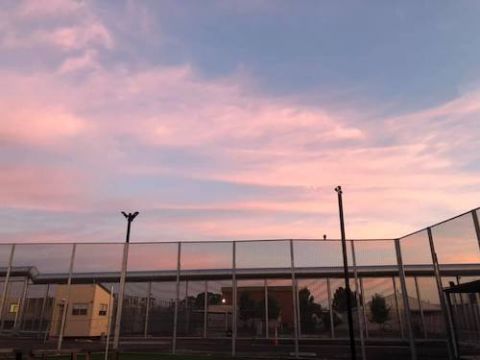
I am reminded of the significant gesture of Pope Francis in his first pastoral visit outside of Rome made to the island of Lampedusa, where hundreds of refugees died at sea. It is our duty as Christians, as followers of Jesus, to reach out to those who are in most need. As he led the penitential liturgy, Francis begged "forgiveness for our indifference to so many of our brothers and sisters."
There are countless many who fear persecution and flee their homelands to seek asylum in this country. I see the unjust treatment of those seeking asylum, and I continue to learn from them, but I learn to advocate for justice and raise awareness of their plight.
In the words of Francis, "we ask your pardon for those who are complacent and closed amid comforts which have deadened their hearts; we beg your forgiveness for those who by their decisions on the global level have created situations that lead to these tragedies."
We can always give something, even if it is only kindness.
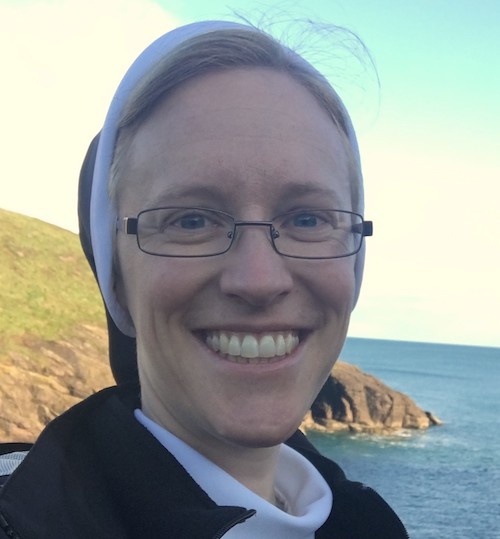 Kathryn Press is an Apostle of the Sacred Heart of Jesus from the U.S. state of Georgia. She professed her final vows in 2018. With a Master of Divinity and a background in religious studies, she has taught every grade from pre-K through high school. After opening a convent in Ireland, she taught in New York City for three years before returning to Ireland in September 2020 to work in evangelization and parish ministry.
Kathryn Press is an Apostle of the Sacred Heart of Jesus from the U.S. state of Georgia. She professed her final vows in 2018. With a Master of Divinity and a background in religious studies, she has taught every grade from pre-K through high school. After opening a convent in Ireland, she taught in New York City for three years before returning to Ireland in September 2020 to work in evangelization and parish ministry.
A somewhat sheepish look came across her face after I called her name to ask her question. Maybe she was too embarrassed to ask it?
She summoned the courage. "Do sisters wear pajamas?" The giggles rippled through the room.
If I had a nickel for every time someone asked me that question! What's with this fascination with my at-home apparel? As a religious sister, I recognize the mystery and "otherness" of our way of life. What are these vows of chastity, poverty and obedience? Throw a habit in the mix, and the questions only multiply. Did I ever date? Swear? Go out partying? What do I wear when I go swimming?
In my various ministries as a sister, I've found Q-and-A time to be helpful. Somewhere lurking just below the surface are pressing questions on people's minds: Do you like all the other sisters you live with? Do you miss having children? Do you have any say about where you live?
But, deep down, I think, the real question is: Are you like me, or are you different? And the answer is: I'm human, too. I had a boyfriend, made car payments, and didn't always use G-rated vocabulary. Professing vows doesn't mean I live them perfectly. I am a work in progress!
Sharing a little bit about myself peels back a layer of "otherness." See, we're not that different, you and I. I too have questions about my faith, friendships that need tending and mending, concerns and worries about my future, and in my heart, there is a longing to make a difference in the world.
Suddenly, the "silly" questions about my pajamas aren't so silly because they've brought us together. Together, we're disciples on this journey of faith. We support one another. We inspire one another. We follow Jesus together. And sometimes, it takes breaking down a few walls and dispelling a few misconceptions about my wardrobe to get there.
So now I make sure there's space, planned or unplanned, for nun questions. In my ministry, I strive to create an environment of openness so we can get to know each other a little bit better. And it often starts over a conversation about my pajamas.
Like what you're reading? Sign up for GSR e-newsletters!


